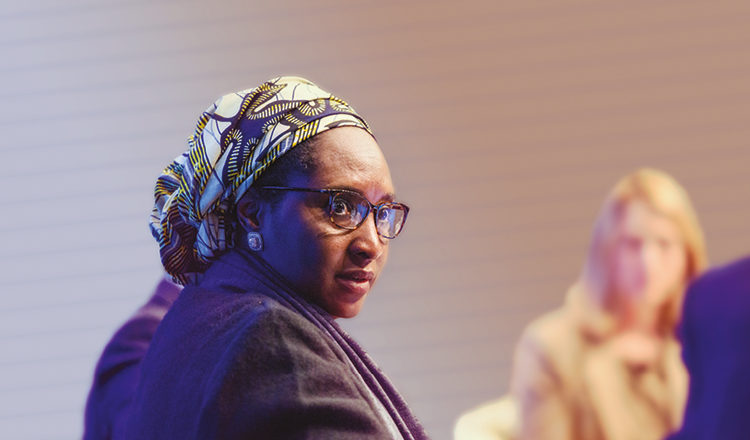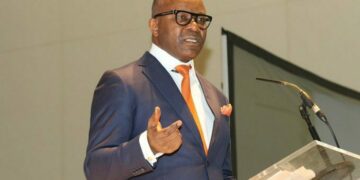Minister of finance, budget and national planning Zainab Ahmed has said the resilience of the nation’s financial system, led by the Central Bank of Nigeria (CBN) and Nigeria Deposit Insurance Corporation (NDIC) made the nation’s economy to stay afloat in the light of recent socio-economic challenges that have continued to undermine the safety and stability of the financial system across the globe. The social economic challenges are accentuated by the lingering effects of COVID-19 pandemic, Russian-Ukraine war, global supply disruptions and climate change challenges.
The Nigerian economy felt the brunt of the global economic distortion, having to go into recession twice in the space of five years. However, the minister said the resilience of the nation’s financial system enabled the country to exit recession within months.
“We also make bold to say that despite these economic challenges, no depositors’ fund was lost given the effectiveness of our agencies, most especially the CBN and the NDIC,” Mrs Ahmed said yesterday at the 3-day International Association of Deposit Insurers (IADI) Africa Regional Committee (ARC) technical assistance workshop hosted by the NDIC in Abuja.
Managing director/CEO of the NDIC, Bello Hassan said the deposit insurer has liquidated 467 insured banks since inception. Mr Hassan also said the corporation has adopted different resolution mechanisms in resolving the failure of distressed deposit-taking financial institutions in the country.
“The liquidation activities of the NDIC involved 467 insured banks in-liquidation, comprising 49 DMBs, 367 MFBs, and 51 PMBs, at end-December 2021,” the NDIC MD said yesterday in Abuja. The NDIC was established in 1989.
The finance minister said NDIC’s collaboration with the CBN in the efficient supervision of insured institutions has helped to promote sound risk management which reduces likelihood of failure and effective resolution of failing banks. “All these have helped to improve public confidence, protect depositors and promote the stability of the Nigerian financial system,” she stated.
Mrs Ahmed said the negative impact of the global challenges on economic growth and financial sector stability in most economies of the world, raised a number of questions concerning the role of DIS in contributing to financial system stability, an area she said CBN and NDIC have distinguished themselves.
Speaking at the workshop tagged: “Normality in Turbulent Periods: The Stabilising Role of Deposit Insurers,” CBN Governor Godwin Emefiele mentioned that the CBN and NDIC have been able to deal with emerging crisis in the nation’s banking system, pointing to the 2009 banking crisis, 2004 banking consolidation exercise and their subsequent resolutions among other reference points of the benefit of the collaboration between the central bank and NDIC.
The CBN governor charged the participants to come up with ways on how policy can be delivered without stifling innovations in the new normal and how stability can be reinforced against the backdrop of the current and emerging national as well as global uncertainties and risks.
NDIC’s board chairman mrs Ronke Sokefun said the financial sector needs to keep working through forums like the ongoing workshop to share experiences, strengthen supervisory tools, monitor the effectiveness of insured institutions’ contingency planning and crisis management framework as well as ensure readiness for timely, and prompt intervention to engender financial system stability.
“… this workshop was organised so as to serve as a forum to dissect pertinent issues, share experiences, compare notes and elevate our understanding of the role of deposit insurers in: early detection & timely intervention; contingency planning & crisis management, crisis simulation to strengthen operational resilience; and contingency planning framework for a safer, and more resilient financial system,” Sokefun stated.





